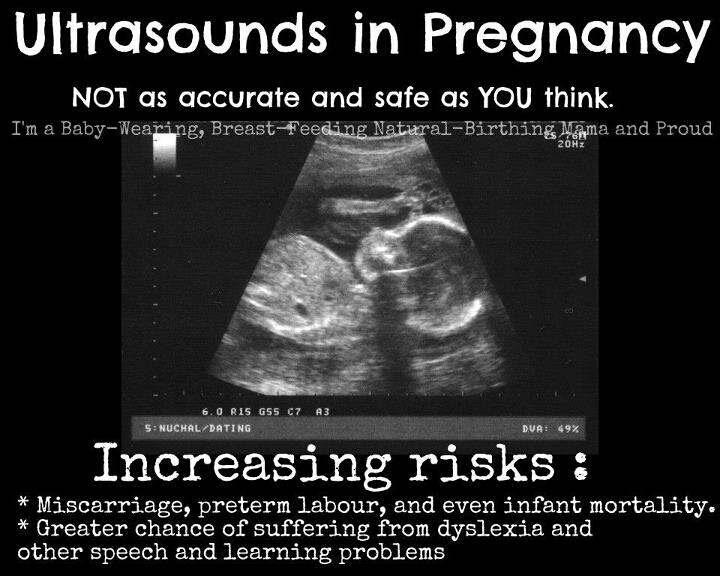Clinical Damage from Ultrasound
I had a look for some research for this and found the most recent study I could from the Health Protection Agency UK (2010)
Some key quotes from the summary.
At high levels of exposure, ultrasound is capable of causing permanent
damage to biological tissues, including teratogenic effects, through
heating, acoustic cavitation and radiation force. At lower levels,
such as those used for diagnostic purposes, ultrasound does not
generally cause heating beyond the normal physiological range, nor
does it cause cavitation in the absence of pre-existing gas bubbles
The quote above considers is what tissue damage can be done through known and measurable processes from an ultrasound beam.
As Ultrasound is a non-ionising methodology the main causes of any potential tissue damage is through the pressure wave, which can lead to cavitation and heating effects at higher power levels.
In general diagnostic/imaging ultrasound (specifically on obstetric scanning), it found little significant evidence of heating or cavitation.
Studies of the effects of ultrasound in humans have largely concerned
in utero exposure to diagnostic ultrasound. The available evidence
does not suggest effects on several outcomes, which include perinatal
mortality and childhood malignancies, but some observational studies
have found increased prevalence of non-right-handedness in males with
prenatal ultrasound exposure. The results on handedness might reflect
confounding rather than causation, however, and analyses comparing
individuals randomly assigned to receive, or not receive, ultrasound
in pregnancy have only shown weak evidence of an effect.
The key finding from this and most other well-run studies I could find was that the heating produced at common diagnostic levels does not heat the tissue appreciably, or create cavitation.
Some wider studies have shown that with frequent Doppler Ultrasound, there may be a smaller foetal-growth and other issues. But a thing to bear in mind is that generally Doppler ultrasound use is minimised for this very reason (as it utilises a much more powerful beam).
Evidence of Problems in pregnancy/childbirth due to Ultrasound
Of course a good skeptic looks for evidence for the phenomena being claimed, so I took a look around for evidence of the
- Increased Miscarriage in people who had ultrasound versus those who didn't
- Greater chance of learning problems.
The problem I then found was that many of the online articles talking of this subject link back to things like this article, which dates back to Midwifery Today Issue 51, Autumn 1999.. Several of these pages link to studies which don't quite appear to say what is implied by the link.
For example. looking through the articles referenced in the midwifery today piece a quote says
A large randomised controlled trial from Helsinki (Saari-Kemppainen et
al., 1990) randomly divided over 9,000 women into a group who were
scanned at sixteen to twenty weeks compared with those who were not.
It revealed twenty miscarriages after sixteen to twenty weeks in the
screened group and none in the controls.
Looking at the abstract for the actual study gives us this quote.
There were no differences in the number of labour inductions or mean
birthweights in the two groups. Perinatal mortality was significantly
lower in the screened than in the control group (4.6/1000 vs
9.0/1000); this 49.2% reduction was mainly due to improved early detection of major
malformations which led to induced abortion.
I found similar things in each of the other studies I looked at linked by that article. The claims made, did not quite tally with what was shown in the abstract for the paper - so the things Beverley Lawrence Beech was talking about are either viewed as not important enough to put in abstract (unlikely), or the highlights she has are not statistically significant.
Conclusion
Research is always being conducted in this area, and I think you would struggle to find a clinician who would say Ultrasound is definitely and unequivocally safe.
However, I struggle to find well run and clear studies showing an increase in miscarriage or post-natal development, as a result of Ultrasound.
Referring back to the Health Protection Agency (2010) document I started with, which makes no secret that further long term research is desirable.
there is no established evidence of specific hazards, but there are
too few research data to draw firm conclusions about their absence,
especially in the long term.
Unless there is some mechanism we are unaware of - and in the absence of specific evidence of dangers, normal Ultrasound is most likely pretty safe as a diagnostic tool.
In answer to the question posed by the title of this thread "does ultrasound pose a significant health risk?" The answer is almost certainly NO, as the various studies performed would have clearly shown a greater effect.

